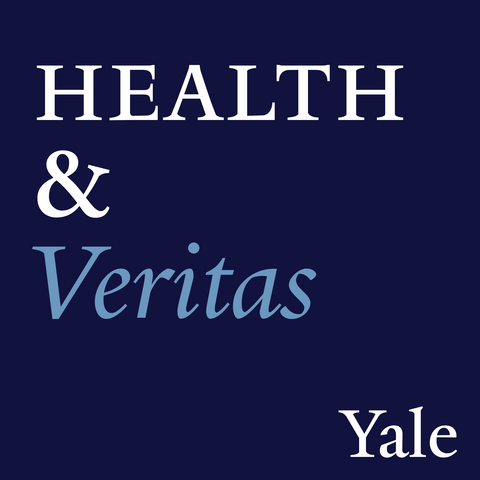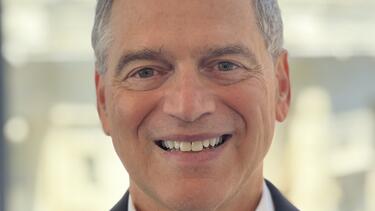Health & Veritas
Howard Forman and Harlan Krumholz, two Yale physician-professors, discuss the latest news and ideas in healthcare and seek out the truth amid the noise.
Produced with the Yale School of Management and the Yale School of Public Health. New episodes are available every Thursday.

Subscribe to Health & Veritas on Apple Podcasts, Spotify, YouTube, or your favorite podcast player.
Episodes
- Podcast
The AI in the Doctor’s Office and Other News
Howie and Harlan discuss a breakthrough pain medication, studies on AI-assisted medicine, the explosion of sports gambling, and the health consequences of the shutdown of USAID.
![Harlan Krumholz and Howard Forman]()
- Podcast
Lisa Rosenbaum: Medicine, Well-Being, and Victimhood
Howie and Harlan are joined by Lisa Rosenbaum, a cardiologist and the national correspondent for the New England Journal of Medicine, to discuss her writing illuminating critical topics in medicine. Harlan reports on the companies claiming to prevent illness through a non-invasive full-body scan; Howie explains the healthcare impact of the Trump administration’s freeze of federal aid.
![Lisa Rosenbaum]()
- Podcast
Susan Mayne: Keeping Food Safe
Howie and Harlan are joined by Susan Mayne, a Yale epidemiologist and the former director of the FDA’s Center for Food Safety and Applied Nutrition, to discuss what the agency can and can’t do to keep contaminants out of food and promote healthier eating habits. Harlan reports on the Trump administration’s cancellation of multiple scientific meetings; Howie explains the administration’s health-related executive orders.
![Susan Mayne]()
- Podcast
Sachin Jain: Has Managed Care Lost Its Way?
Howie and Harlan are joined by Sachin Jain, CEO of the nonprofit Scan Health Plan, who argues that the managed care industry must dramatically reorient itself towards patient care. Harlan looks at the long-term health effects of the L.A. wildfires and an effort to replace the widely used body-mass index; Howie reflects on the growing mistrust of doctors and its connection to declining vaccination rates.
![Sachin Jain]()
- Podcast
Perverse Incentives in Healthcare and Other News
Howie and Harlan discuss health and healthcare headlines, including misaligned incentives keeping medicine from its mission, burdensome out-of-pockets costs, ultraprocessed foods, and serving the growing population of cancer survivors effectively.
![Harlan Krumholz and Howard Forman]()
- Podcast
Dana Dunne: Learning to Learn
Howie and Harlan are joined by Yale physician Dana Dunne, who leads a new coaching program designed to help medical students develop a lifelong orientation toward growth and building knowledge. Harlan reports on a new generation of AI that can diagnose patients more consistently than human doctors; Howie explains how the state of Connecticut wiped out medical debt for thousands of low-income residents.
![Dana Dunne]()
- Podcast
Jaewon Ryu: The Power of Integrated Care
Howie and Harlan are joined by Jaewon Ryu, CEO of Risant Health, a nonprofit company that brings together integrated health systems with the goal of spreading the adoption of value-based care. Harlan reports from the annual Cardiovascular Clinical Trialists Forum on progress toward faster and more effective clinical trials; Howie reflects on the murder of UnitedHealthcare CEO Brian Thompson.
![Jaewon Ryu]()
- Podcast
Aaron Kesselheim: Law, Policy, and Health
Howie and Harlan are joined by Aaron Kesselheim, a physician, attorney, and public health expert, to discuss the shifting legal landscape for healthcare regulation and his experiences serving on an FDA advisory committee. Harlan reports on the growing evidence of widespread health impacts from microplastics; Howie provides an update on the bird flu outbreak.
![Aaron Kesselheim]()
- Podcast
Vin Gupta: Impact at Scale
Howie and Harlan are joined by Vin Gupta, a physician, a medical analyst for NBC News, and the chief medical officer of Amazon Pharmacy. Harlan reports on the Biden administration’s proposal to cover obesity drugs with Medicare and Medicaid; Howie offers some reasons to be thankful.
![Vin Gupta]()
- Podcast
Halle Tecco: Investing in Women’s Health
Howie and Harlan are joined by investor and entrepreneur Halle Tecco to discuss her work connecting the worlds of technology and healthcare, and her latest venture, which allows women to freeze their eggs for future use for free if they donate half of them to a couple in need. Harlan checks in from the annual meeting of the American Heart Association; Howie discusses his concerns about Robert F. Kennedy Jr.’s appointment as secretary of health and human services.
![Halle Tecco]()











